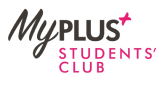We are living in challenging and uncertain times, but for some students who have a long term health condition, a physical or an invisible disability such as dyslexia, ADHD, depression and anxiety, this can then create some additional concerns when applying for graduate jobs. Many students worry as to whether they should let a potential employer even know they would need a bit of additional support in a recruitment process or when starting a graduate job. Many students feel that if they ask for support they will almost certainly be discriminated against and rejected, or at the very least be met with a lack of understanding.
To offer some reassurance and advice on this area, this blog briefly revisits the Equality Act 2010 and look at your rights and protections under the Act and how you can make it work for you! Helen Cooke founder of MyPlus also gives her hints and tips in making the most of being at home during this period.
So who is the Act for and what protections does it give me?
The Equality Action 2010 defines a disability as “a physical or mental impairment which has a substantial and long-term adverse effect on a person’s ability to carry out normal daily activities”. It is indeed a very wide definition and includes those students with diagnosed dyslexia or diabetes who may not recognize that they fall under this act or if wish to make use of it.
Under the Equality Act it is unlawful for employers to discriminate against disabled people and this includes all areas of the recruitment process such as:
- application forms and interviews
- aptitude or proficiency tests
- job offers, including terms of employment & pay
The Equality Act also requires employers to make “reasonable adjustments” to ensure that a disabled applicant/employee is not treated less favourably than their non-disabled counterpart.
So how does this help me as a disabled student looking for a job?
1 Levels the Playing Field
The reasonable adjustments that you can request to support you through the recruitment process allow you to compete on a level playing field with everyone else.
2 Allows you to focus on demonstrating your strengths and skills
Once you have some support in place, you can then totally focus on demonstrating your ability/skills and experience that you have to do the job.
What support/reasonable adjustments can I request?
This will be different for everyone and but sometimes it’s difficult to think what might help you especially if you have not applied to many graduate jobs or internships before. However, a great starting point is to think about what support has been put in place in your academic studies to help you. This is also really helpful when thinking about the workplace but we will cover that one in another blog!
Some common reasonable adjustments that students ask for
- Additional time or adjustment in tests
- Visit organisation prior to interview
- Adjusting the layout in interview room
- Adjustments on interview questions asked – how they are asked, or questions/topics given out just before
- Use of a sign language interpreter
- Being sent photos and information of interview panel members before the interview
Remember that the employer will rely on you to tell them what you need to help you in the application process. You know what might be a potential difficulty for you much better than an employer. If you need some help thinking about this, then do email us via careers-plus@bath.ac.uk and we can support you.
For additional resources on this area take a look at the information on MyPlus and also on our resources at www.myfuture.bath.ac.uk. Click on Careers and then click on resources and type disability in the search option.
When Should I disclose to an employer?
The timing of this will be different for different students and will very much depend on what reasonable adjustments you will need. It’s a good idea to look at the organisation’s recruitment process as this will help you to make a decision. For example if you have dyslexia or you suffer with anxiety, you may find online tests a challenge and need additional time to do well in it. If that’s the case then you would need to disclose sooner rather than later here to allow an employer to put some different arrangements in place for you. Other students may need some adjustments in the interview process but may decide not to disclose on an application. For further information on when to disclose again, check out the resources given above.
Additional Support from MyPlus 
The University of Bath recently partnered with MyPlus – a charity supporting disabled students/graduates into work and we are now part of their Universities' Club. Helen Cooke is the founder of MyPlus and last week I had the opportunity to speak with Helen and find out some of her thoughts on finding graduates jobs in this climate.
“Helen, you work with some of the top progressive employers looking to diversify their talent pool and recruit disabled graduates. What would your advice be to Bath students who are worried about COVID-19 and the affect this will have on the graduate labour market and their ability to find work?”
I think it is natural for all students, regardless of disability, to be concerned about the impact of COVID-19 on the graduate labour market however I think first off it is really important to remember that this time will pass, the economy will recover, and the graduate labour market will too.
What is key is to use this time to be ready for when graduate recruiters open for applications which they are likely to do this Autumn as usual. Use the resources, and particularly the Ebooks, available for free at www.myplusstudentsclub.com to work out what your strengths are, how you are going to positively position your disability to an employer, and to think about what support you may need during the recruitment process and how you are going to ask for this. It is also an opportunity to research disability-confident employers.
Additional Resources to help you
Upcoming Webinars –To Disclose or not to disclose a Disability - focuses on the above but gives more detail and also looks at how to target diversity friendly employers.
To Disclose or not to Disclose webinar – 21st April 12 noon
New webinar - Identifying strengths: Using a disability to stand out from the crowd 29th April 11.30 am
Make a note of these in your calendar and they will be available to book soon! If you would rather not wait until then, take a look at a recording here of the Disclosure webinar
Respond

